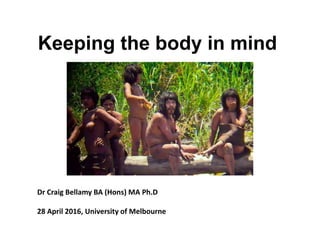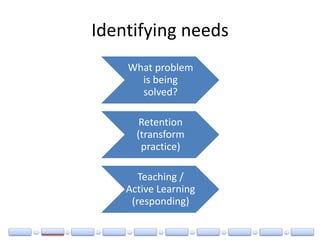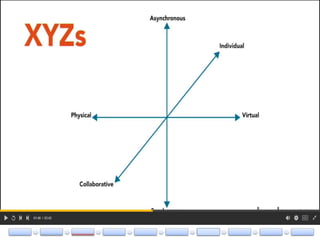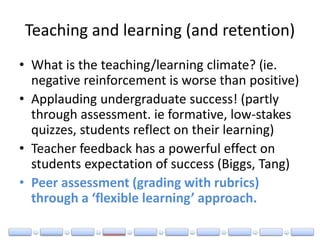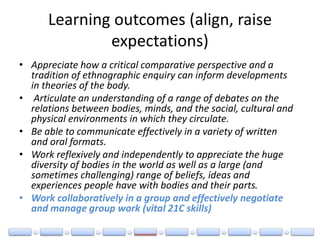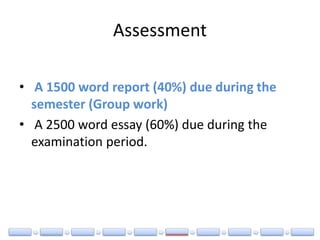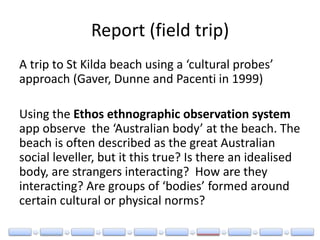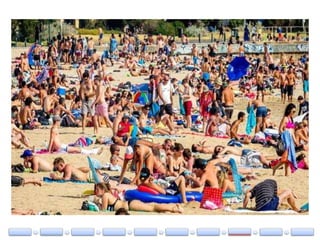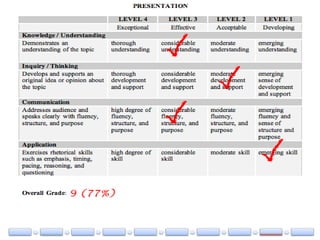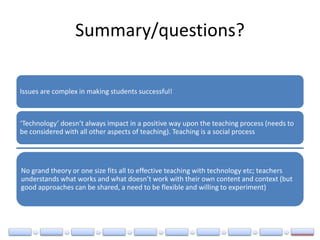This document outlines a curriculum for a course on the body that focuses on active learning strategies to improve student retention and success. It discusses using formative assessments, peer assessment, and teacher feedback to create a positive learning climate. Students will conduct fieldwork observing bodies at a beach and analyze cultural norms. The course aims to develop students' critical thinking on the social construction of the body through diverse perspectives and effective communication skills. Assessment includes a group report and individual essay. It emphasizes that teaching is complex and different approaches work best depending on content and context.
